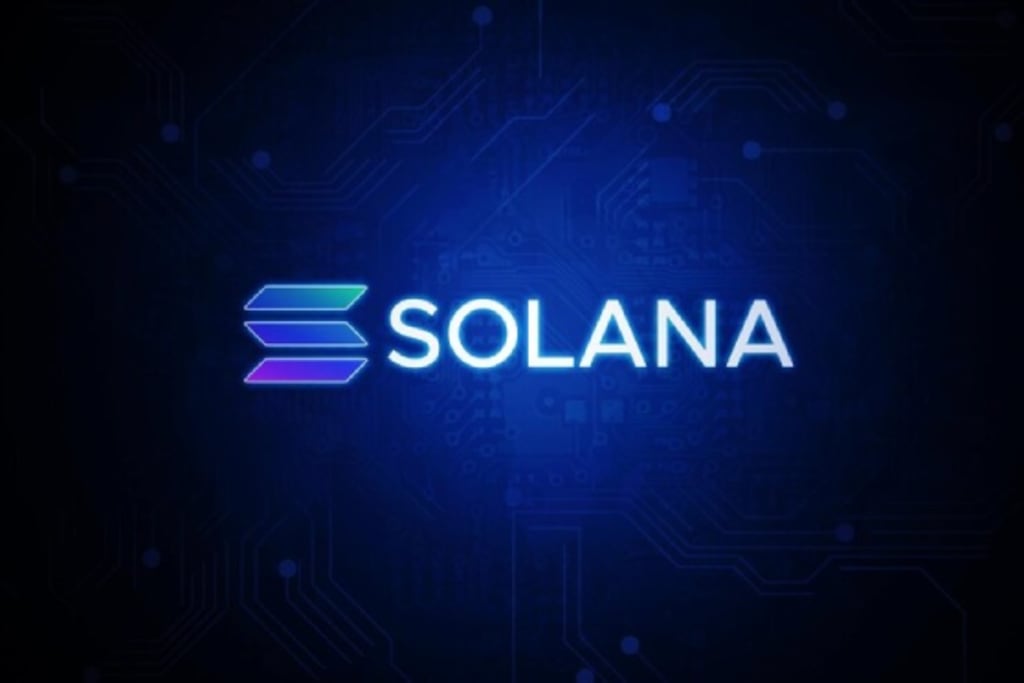Solana Announces Real-time Emissions Measurement
Solana Foundation announced real-time emissions measurement of the Solana blockchain. Solana has been displaying regular updates on the network's environmental metrics since April 21.

This new Solana development sets a new standard for measuring emissions in blockchain by publishing data. The network integrated with a carbon data platform, Trycarbonara to develop this tracker. All Solana nodes are equipped with software that calculates precise carbon footprint data. This information fluctuates depending on the throughput of specific validators. Energy consumption, total carbon emissions, network power intensity, total node count, megawatt-hours, and other data are included.
The dashboard will display network data. The emission tracker collects statistics from on-chain data as well as data from a representative sample of Solana validators. Anyone can analyse network emissions from the dashboard's various statistics.
Blockchain networks already have a significant environmental impact, with crypto mining using a significant amount of energy. They also rely on computers and software, which has a negative impact on the environment. Accountability and transparency of carbon emissions by corporations and organisations are key components of climate change mitigation.
This Solana Foundation initiative may push other blockchains to implement methods to monitor and disclose their carbon emissions through comparable tracking systems.
Real-Time Emissions Measurement
Solana Foundation claimed Solana to be the first major smart-contract blockchain network to have its emissions measured in real-time. Solana collaborated with Trycarbonara, a carbon data platform, to develop the emission tracker.
All Solana nodes have software that measures accurate carbon footprint data. This data changes based on the throughput of individual validators. The data includes energy consumption, total carbon emissions, network power intensity, total node count, megawatt-hours, and other data.
The dashboard will give statistics for the network. The emission tracker collects stats from on-chain data and data gathered from a Solana validator representative sample. Anyone can analyze network emissions from the various data on the dashboard.
Solana takes real-time data from Solana nodes software and updates the dashboard every two weeks.
The Solana Foundation aims to set new standards for measuring emissions in blockchain by publically releasing the data.
Suggested Post | Solana DeFi Development | Advantages and Applications
Solana's real-time emissions measurement shows the following data on the dashboard:
- Emissions measurement of RPC nodes: The instrumentation of the underlying hardware measures emissions of remote procedure call (RPC) nodes.
- Emissions granularity at the server level: It provides emission data broken down across multiple dimensions, including the geolocation of RPC nodes and validators.
- Marginal (or consequential) emissions: The emission tracker displays marginal emissions based on the increasing emissions effect of additional demand.
- Embodied emissions: The tracker displays embodied emissions of the hardware infrastructure of the Solana network. It includes the entire hardware lifecycle like manufacturing, transportation, and end-of-life management.
- Power Usage Effectiveness (PUE): PUE indicates the overall efficiency of a data center.
Check It Out | Game Development on Solana | The Future of Gaming
Blockchain networks already have a huge environmental impact, particularly crypto mining takes up a ton of energy. They also rely on computers and software, having detrimental effects on the environment.
Accountability and transparency of carbon emissions by businesses and organizations are critical factors to fight against climate change.
This initiative of the Solana Foundation may encourage other blockchains to adopt measures to monitor and disclose their carbon emissions via similar tracking systems.
According to experts, blockchains can help enterprises in developing smart contract solutions that can help track and monitor the sustainability of products. The technology can also speed up renewable energy deployment in developing countries. Hire blockchain development company to track and monitor.
If you are interested in building a similar blockchain solution to track various processes then Oodles can assist you. Contact our blockchain developers to get started.
#Solanablockchaindevelopmentcompany #Solanadevelopment #Solanablockchaindevelopment #Solanablockchaindevelopmentservices





Comments
There are no comments for this story
Be the first to respond and start the conversation.